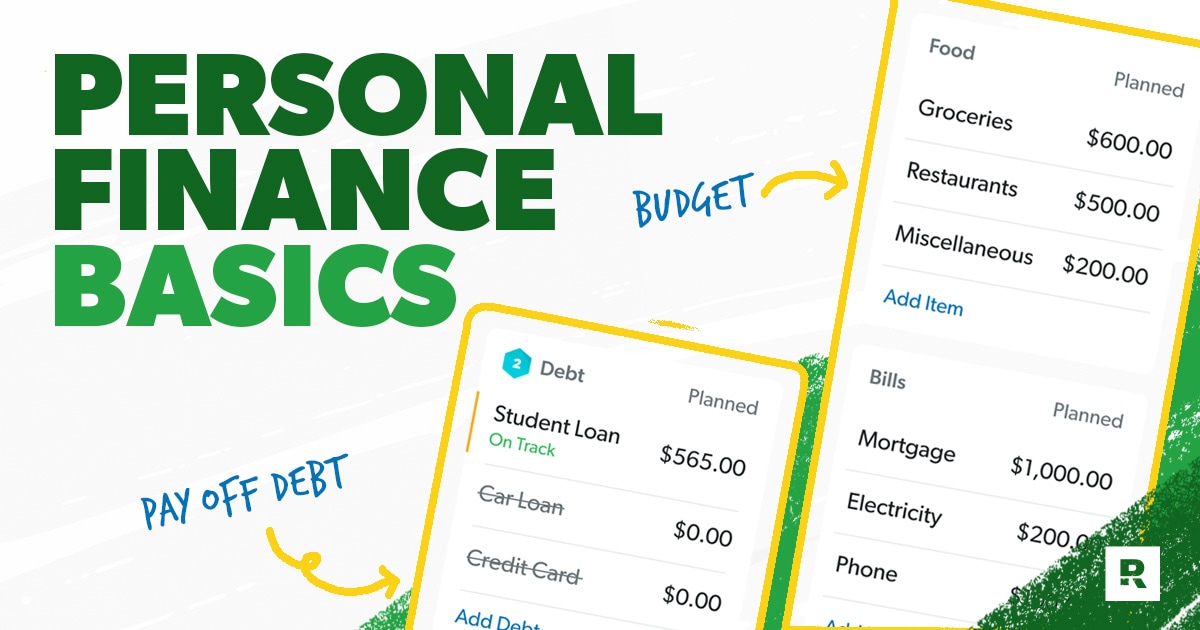What is Personal Finance?
Personal finance refers to the management of one’s financial resources to achieve financial goals and build wealth over a period of time. Personal Finance involves making informed decisions about spending, saving, investing, and managing debt. Here are some basics of personal finance:
- Budgeting: Creating a budget is the foundation of personal finance. It involves tracking your income and expenses, setting financial goals, and allocating your money accordingly. A budget helps you understand your spending habits, save money, and plan for future expenses.
- Saving: Saving is the process of setting aside money for future use. It’s important to have an emergency fund that can cover 3-6 months of living expenses, in case of unexpected events like job loss or medical emergencies. Saving for short-term and long-term goals, such as buying a house, starting a business, or retirement, is also crucial.
- Managing debt: Debt can impact your financial well-being. It’s important to manage debt wisely by paying off high-interest debts first, avoiding unnecessary debt, and using credit responsibly. This includes understanding the terms and conditions of loans, credit cards, and other forms of credit.
- Investing: Investing is a way to grow your wealth over time. It involves putting your money into various investment vehicles such as stocks, bonds, real estate, or retirement accounts. It’s important to understand the risks and returns associated with different investments and create a diversified investment portfolio based on your financial goals and risk tolerance.
- Insurance: Insurance is a form of risk management that helps protect you from unexpected financial losses. Common types of insurance include health insurance, life insurance, home insurance, and car insurance. It’s important to have appropriate insurance coverage to protect yourself and your assets from unforeseen events.
- Retirement planning: Planning for retirement is crucial to ensure a financially secure future. This includes contributing to retirement accounts such as 401(k)s, IRAs, and pensions, understanding retirement income sources, estimating retirement expenses, and planning for the lifestyle you want during your retirement years.
- Continuously educating yourself: Personal finance is a dynamic field, and it’s important to continuously educate yourself about financial concepts, strategies, and best practices. Stay informed about changes in tax laws, investment options, and other relevant financial information to make informed decisions about your money.
- Financial goal setting: Setting clear financial goals, both short-term and long-term, can help you stay focused and motivated to achieve them. Whether it’s saving for a down payment on a house, paying off debt, or building an investment portfolio, having specific financial goals can help you make informed financial decisions.
- Financial literacy: Educating yourself about personal finance concepts, such as budgeting, investing, taxes, and insurance, is crucial for making informed financial decisions. Stay updated on financial news and best practices to improve your financial literacy and make informed choices.
- Diversification: Diversifying your investments and income sources can reduce risk and increase financial stability. Avoid relying solely on one source of income or investment to mitigate potential financial risks.
- Seeking professional advice: When needed, don’t hesitate to seek advice from qualified financial professionals, such as financial planners, accountants, or investment advisors, to help you make informed financial decisions based on your specific circumstances.
- Living below your means: It’s important to practice living below your means, which means spending less than you earn. This involves avoiding unnecessary expenses, being mindful of your spending habits, and making wise financial choices.
Personal Finance importance-
Personal finance is of paramount importance for several reasons:
- Financial Security: Managing your personal finances effectively helps you achieve financial security. It enables you to build an emergency fund, pay off debt, and save for retirement or other long-term financial goals. Financial security provides peace of mind and protects you from unexpected financial shocks.
- Goal Achievement: Personal finance helps you set and achieve your financial goals. Whether it’s buying a house, starting a business, or going on a dream vacation, managing your finances allows you to save and invest strategically, making your goals more achievable.
- Improved Quality of Life: Good personal finance management can greatly enhance your quality of life. It allows you to effectively budget and manage your expenses, ensuring you have enough money to cover your needs, wants, and desires without constantly living paycheck to paycheck. Financial well-being positively impacts your mental and emotional well-being, reducing stress and improving overall life satisfaction.
- Wealth Building: Effective personal finance management can help you accumulate wealth over time. By budgeting, saving, and investing wisely, you can grow your wealth through compound interest, capital appreciation, and other investment strategies. Building wealth provides opportunities for financial growth, increased financial security, and generational wealth transfer.
- Financial Preparedness: Personal finance management helps you be financially prepared for unexpected events such as medical emergencies, job loss, or natural disasters. By having an emergency fund and appropriate insurance coverage, you can protect yourself and your family from financial hardships that may arise.
- Responsible Financial Behaviour: Managing your personal finances responsibly means being disciplined with spending, paying bills on time, and avoiding excessive debt. It helps you develop healthy financial habits and behaviors, which are crucial for long-term financial success and stability.
Conclusion: personal financial management involves budgeting, saving, investing, managing debt, setting financial goals, continuous financial education, and monitoring and adjusting your financial plan. By effectively managing your personal finances, you can improve your financial well-being and work towards achieving your financial goals. It’s important to create a plan that aligns with your financial situation, lifestyle, and goals, and to seek professional advice if needed.
For more such articles keep visiting www.moneysmint.com
